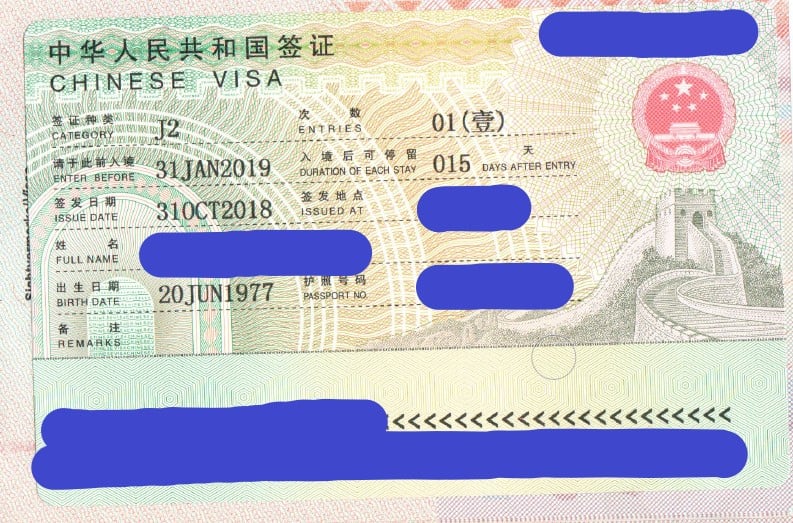If you are planning to film news content in China, you will likely need a J2 Visa. This is the short-term journalist visa issued by the Chinese government to foreign media professionals. At Shoot In China, we frequently advise clients on navigating this process, so here’s a practical guide based on the latest requirements.
What Is a J2 Visa?
According to the Chinese Embassy, the J2 visa is issued to “foreign journalists who intend to go to China for short-term news coverage, with a stay not exceeding 180 days.”
By contrast:
- J1 Visa: For long-term resident journalists (over 180 days).
- J2 Visa: For temporary projects and assignments (under 180 days).
We have updated the latest policy & guidance for J2 VISA in China for 2023, please go there.
What is J2 VISA?
From official Chinese embassy website: Foreign journalists who intend to go to China for short-term news coverage. The intended duration of stay in China is no more than 180 days.

Who Needs a J2 Visa?
The J2 visa is required for:
- Foreign journalists reporting in China.
- Media professionals working on news coverage projects.
- Supporting staff, such as producers, directors, cameramen, and sound technicians, if they are part of the reporting crew.
⚠️ Important: Commercial film production (advertising, branded content, corporate films) usually does not require a J2 visa. These projects often operate under M (business) visas arranged with a local partner or production company. Always confirm which category applies before applying.
How to Get a J2 Visa
The process has two major stages:
You then submit all required documents and complete the visa application process.
Approval by the Foreign Affairs Office (FAO)
You must obtain a Notification Letter (Invitation Letter) from the local FAO.
This is the hardest part, as the FAO evaluates whether your project aligns with Chinese regulations.
Projects backed by major organizations, state partners, or government agencies have a much higher success rate.
Application at the Chinese Embassy/Consulate
Once FAO approval is granted, the invitation letter is sent to your local Chinese embassy.
Required Documents for a J2 Visa
You will typically need:
- A valid passport and recent passport photos.
- A letter from your media organization confirming your employment and assignment.
- A description of your project, including subject matter and coverage scope.
- A travel schedule with contact details in China (local partners, interviewees, etc.).
- A list of filming equipment you plan to bring.
Additional documents may be requested depending on the project.
Timeline and Processing
With government or FAO backing: Approvals are often much faster, sometimes within 7–10 working days once the invitation letter is issued.
Without strong local support: The process can take 3–4 weeks or longer.
Risks of Filming Without a J2 Visa
Many clients ask: “Do I really need a J2 Visa?”
- Legally: Yes, if you are doing news reporting or journalism, you must hold a J2 visa.
- In practice: Some foreign crews film under other visa types (such as business visas), but this carries risk. Any unauthorized activity could affect your current project and future entry to China.
Our advice: Always comply with Chinese visa regulations.
Letter of invitation by FAO
Once FAO approve your request for your J2 Visa, they will submit a invitation letter to your local Chinese embassy, and by then you will need to bring all the documents to the embassy and start your final process of J2 Visa, it’s fairly simple in this stage, and it will take up to 7 days (can be sooner sometimes if you ask) to get your passport back.
Can My Application Be Rejected?
Yes. Rejection is likely if:
- The subject matter is considered politically or culturally sensitive.
- The project is not supported by a recognized local organization.
- The required documents are incomplete.
To improve your chances, work with a China-based production company that understands the process and can guide you through approvals.
How long does it take to get a Journalist Visa?
If you have no support from the local company, this can take up to 30 days.
What will make the Visa application process faster?
If your project is supported by the local government, and it promotes the Chinese culture, you will certainly get a faster process for your application, as the local FAO will make exceptions for you.
There are things to check before you do your filming in China, if you have more questions, feel free to send us an email:
Final Thoughts
Applying for a J2 Journalist Visa in China can be complex, but with the right preparation—and local support—you can navigate the process more smoothly. At Shoot In China, we have been helping international productions since 2012 with permits, visas, equipment rental, and bilingual crews.
📧 For guidance on your upcoming project, contact us at [email protected].



